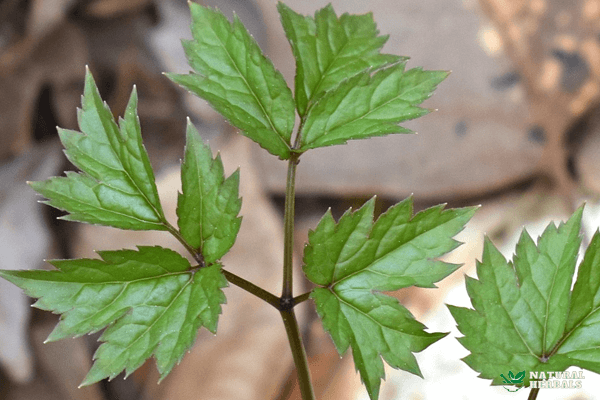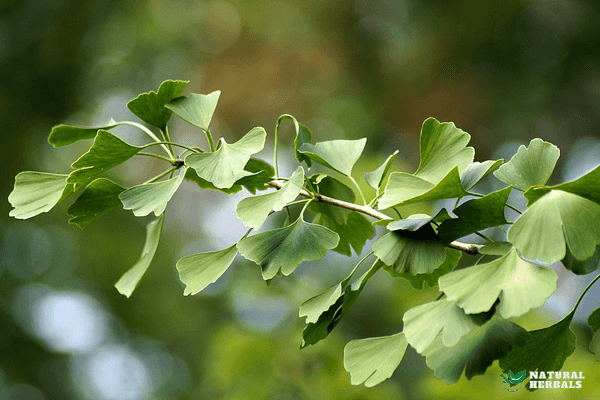
A medicinal herb with a long history. Milk thistle or tartar belongs to the thistle family. It can be found in wastelands, along roadsides, near forest belts, and on steppes. The plant is represented by a rather tall shrub with prickly leaves and flowers dotted with needles. Thistle has been bringing health and longevity to people for centuries.
The plant has been used for thousands of years. It was actively used in ancient Rome to treat liver disease, gallbladder disease, and eliminate melancholy. In Greece, thistle products were used for poisoning, snakebites, and spider bites.
This amazing plant is mentioned in the writings of such famous doctors as Pliny the Elder and Dioscorides.
During the Middle Ages, when there was a widespread battle against witchcraft, most of the recipes for using milk thistle were lost. But even what remained was enough for scientists of the time to begin using the plant's seeds again to treat many diseases. It was the remedy that was used in medieval Europe to treat hepatitis.
Milk thistle is not a weed
Thistle is commonly known by names such as “thistle,” “burdock,” and “calamus.” It is a plant with spiny leaves and fluffy, bright purple flowers that grows everywhere like a weed.
The seeds are medicinal. Scientists have identified more than 200 different substances in their composition, each of which has its individual action. In combination with each other, they form a whole complex for strengthening the body, as well as healing and cleansing it. What are these substances?
Constituents
Silymarin
This is a collective name for a group of flavonolignans that:
- Contribute to the destruction of free radicals
- Have an antitoxic effect on the whole body
- Act as antihistamines
- Are hepaprotective for the liver
The fruit of milk thistle contains up to 3% silymarin, and it is also found in its leaves, stems, and roots.
Vitamins
Thistle contains many vitamins that our body cannot do without:
- Vitamin A, Retinol
- Vitamins of group B
- vitamin E – Tocopherol
- Vitamin C, ascorbic acid
In thistle, there are others whose beneficial effects determine their interaction.
Minerals
The mineral composition of thistle is very rich, containing:
- Selenium
- Potassium
- Calcium
- Iodine
- Iron
- Copper
- Chrome
- Boron
- Magnesium
- Zinc
- Manganese
The correct ratio of trace elements in the body ensures healthy functioning.
Other substances
Among the many active substances contained in milk thistle, we can mention:
- Lignans
- Flavonoids
- Organic Acids
- Essential Oils
- Saponins
- Proteins
- Solid Oils
- Resins
- Mucus
Each of the substances listed is essential for humans, and we all need them in a certain amount.
Milk Thistle: Benefits and Dangers
Milk thistle has an incredible amount of health benefits, and the more we learn about it, the more people love it! This little ragweed is a natural herb with many anti-inflammatory and antioxidant properties. It has been used as an herbal medicine for over 2,000 years for many ailments, including liver, kidney, and gall bladder problems.
One of the main reasons why milk thistle is so beneficial to overall health is that it cleanses the body's natural immune block, the organ that detoxifies toxins: the liver. This is the body's main defense against food and environmental toxins.
The food we eat can be filled with preservatives, pesticides, and other harmful substances. The air we breathe is filled with dangerous ingredients. Even the water we drink contains many harmful toxins such as pharmaceuticals, heavy metals, and other compounds such as fluoride. Unfortunately, all of this has a very strong effect on the liver.
After a while, the liver can become so saturated with these accumulated toxins that it begins to malfunction and may even stop functioning.
Signs and symptoms of this include poor skin tone, headaches, fatigue, and overall reduced immune function. The liver is responsible for over 300 metabolic functions throughout the body, so you can see how liver failure can be such a recognized condition.
The active compound in milk thistle extract called silymarin has been studied for years and is considered one of the best supplements in the world for liver health. It has been shown to protect organ cells by essentially blocking or neutralizing certain hepatotoxic compounds such as acetaminophen, non-steroidal anti-inflammatory drugs (NSAIDs) such as ibuprofen, antidepressants, and cholesterol-lowering drugs. In addition, preliminary studies show that it may not only protect liver cells but also repair those that are damaged.
For a long time, the biochemical mechanisms involved in the benefits of milk thistle were unclear. Laboratory studies have shown that milk thistle promotes the synthesis and activity of certain enzymes that function in the detoxification pathway. In particular, it stimulates the glutathione S-transferase pathway, which increases the intracellular concentration of glutathione.
Glutathione is known as the body's main antioxidant and is essential for the proper functioning of the entire body. It is also important in fighting disease and maintaining overall health.
Milk thistle appears to be a natural way to increase healthy glutathione levels in the body, thus supporting detoxification of the body and overall health.
There are many different ways to incorporate milk thistle into your daily routine, but perhaps the most convenient way is to add milk thistle extract. Minor side effects have been reported for milk thistle, but it is always best to consult your doctor when adding a new supplement to your diet.
Indications and Contraindications for Use
Thistle seeds are used with age to maintain health and protect against harmful substances including alcohol, drugs, pollutants, and other diseases. Silymarin is a bioflavinoid complex present in milk thistle that prevents various toxic substances from entering the cells.
As a result, the damage is minimized. Milk thistle is also known as a storehouse of the powerful protein “glutathione”, which contains three extremely essential amino acids in our body. The glutathione present in silymarin has immunomodulatory, hepatoprotective, and preventive effects.
Milk thistle for diabetes and blood sugar regulation
A review of a large number of clinical trials was published in the Journal of Diabetes Research in June 2016, showing that milk thistle had a significant effect on lowering blood sugar levels, as well as glycated hemoglobin (HbA1c) levels in the blood. These well-documented benefits of blood sugar regulation in diabetics also in turn help slow the development of numerous diabetes complications such as diabetic nephropathy (diabetic kidney disease), diabetic neuropathy, diabetic retinopathy, and others.
Also Read: 7 Helpful Herbs For Type 2 Diabetes Patients
Benefits of milk thistle for weight loss
Although research on its direct effects on weight loss is still in its early stages, it is often used as a supplement in many weight loss plans because of the properties listed below.
Its ability to maintain health and stimulate metabolism.
In addition to maintaining a healthy liver, its ability to regulate and maintain stable blood sugar levels prevents insulin resistance and aids in weight loss.
With silymarin (a bioflavonoid complex from milk thistle) with proven anti-inflammatory properties and rich in antioxidants, it helps to speed up muscle recovery after exercise.
It is also known to help increase the solubility of bile, the juice of the liver and gallbladder. Proper food digestion and fat metabolism is maintained when the bile is healthy. This benefit of silymarin also helps prevent gallstones and supports gallbladder health.
Researchers have also shown that the silybin present in milk thistle (silymarin) reduces the size of fat cells in the body, making them easier to burn.
Milk thistle for shiny hair and skin
The rich antioxidant content present in it helps prevent the accumulation of free radicals under the skin. This in turn prevents oxidative damage to skin cells and slows down aging. The cleansing effect of thistle on the liver and colon prevents the accumulation of toxins in the body, making the skin more radiant. It is known to have the ability to reduce the level at which it forms a protective layer on healthy cells.
This property prevents skin cell damage from external pollutants, harmful UVB rays and heat. It is for these benefits that this herb is also a great addition to treat damaged hair and prevent hair loss.
Possible anti-cancer properties
Milk thistle may help prevent cancer because it scavenges free radicals and eliminates toxins. Several studies in the last decade have shown that it lowers bad cholesterol in diabetics. As a result, it is known to be good for the heart. Thistle is also important in the digestive process and prevents stomach cramps, bloating and stomach discomfort. This herb also has a mild laxative effect, so it aids bowel movements and facilitates excretion.
Thistle for Hangovers
Whether this herb helps a hangover is still debatable and is an area where little research has been done. Although compulsive or chronic alcoholics have been found to experience liver-protecting effects with spotted thistle, it may not provide any benefit in moderate drinkers. This is because milk thistle interferes with the alcohol digestive enzyme (MEOS) produced by heavy drinkers.
Milk Thistle Dosage
Thistle is taken orally and is commonly available as supplement capsules, powders, and tinctures. It is also available in combination with other herbal extracts and teas. Dosage: The most commonly recommended dose of thistle for a healthy adult is 1 capsule 2-3 times daily half an hour before meals. However, you should consult your doctor or nutritionist to determine the appropriate dosage for you. A balanced diet and physical activity are essential for optimal results. Studies have shown that taking this herb is safe for up to 41 months.
Side Effects of Milk Thistle
It is always advisable to consult your doctor or health care professional before taking it. Some of the most well-known side effects of milk thistle include:
- Allergies, if you have a known allergic reaction or response to daisies or sunflowers, you should avoid them.
- A woman who is breastfeeding or pregnant should also avoid milk thistle. This herb has been observed to have similar effects to the female hormone estrogen. Therefore, women with uterine problems such as endometriosis or uterine myomas should avoid its consumption.
- This includes people with ovarian, breast, or uterine cancer.
- People taking diabetes medications should always talk to their doctor before taking them, as it has a significant effect on blood sugar levels.
- Clinical studies from the past few years also recommend avoiding thistle among people taking warfarin as a blood-thinning medication.
The silymarin, is a bioflavonoid complex consisting of 3 main types of bioflavonoids called silybin (also called sylvinin), silydianin, and silycristine. Among these 3 bioflavonoids, it contains up to 50-70% silybin, and most of its medicinal properties are attributed to silybin. In addition to these three bioflavonoids, thistle contains vitamin E, proteins, sterols and other components.
Milk thistle for women
Milk thistle tea is worth recommending to women of all ages. Many sources indicate that it can regulate menstrual disorders, especially when drunk regularly over a long period of time. This action may also support reproductive functions – natural medicine recommends milk thistle especially to couples planning an in vitro fertilization procedure.
Most herbs should be used with caution during pregnancy due to the lack of comprehensive studies, but after delivery, milk thistle can have a beneficial effect on milk production. Finally, during the menopause, the herb has the ability to reduce the most bothersome symptoms – from hot flashes to headaches and irritability.
Speaking of menopause, there are scientific studies to suggest that silamarine stimulates bone mineralization and may prevent or delay the development of osteoporosis, a problem typically associated with menopause.
Summary
Milk thistle has not been found to be toxic, which ensures its safe use. Contraindications to taking milk thistle are obstruction of the bile ducts. It is also not recommended during pregnancy and breastfeeding. As it turns out, milk thistle, which grows wild in the meadow, is a kind of pharmacy for our body. It has a beneficial effect not only on the liver, but also improves the functioning of the entire body, additionally protecting against cancer.

I am an official member of International Association of Therapists and research natural healing methods and herbs. The posts are my findings.








